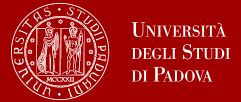A Trapped Ion Quantum Computer in Padua
Building a quantum computer in Padua is now concretely possible thanks to the massive investment of the World Class Research Infrastructure (WCRI) a call of the University of Padua for the acquisition of research infrastructures that have characteristics of excellence such as to become a reference point in the international scene.
The Department of Physics and Astronomy (DFA) is the leader and coordinator of the project named Quantum Computing and Simulation Center (QCSC) in which ten Departments of the University of Padua participate, the interdepartmental center for quantum technologies Padua QTec, as well as a consortium of research bodies, private companies and public institutions of the highest level, such as Cineca, INFN or Neat. Suche a wide collaboration was needed given the interdisciplinary nature of the program.
«We plan to build- explains Simone Montangero, QTech Center Vice Director and Principal Investigator of the project
QCSC - the first general purpose quantum trapped ion computer in Italy and to create around it, jointly with the other actors, a center of competence capable of governing the development
and the inclusion of quantum technologies in Italian universities and in the business sector. Thee construction of an efficient scalable quantum processor is a formidable technological challenge, we are talking about a paradigm shift that can lead to unprecedented computing power and to algorithms that can solve complex problems much more efficiently ».
The main applications may be in crucial areas such as cybersecurity, and privacy. In perspective, there may also be applications in the field of medicine, in the research of vaccines or new drugs, in the analysis of the genome and big data with machine learning, as well as in the solution of differential equations for the execution of meteorological, social or finacial forecasts.
«Having access to the new IT paradigm, both in terms of know-how and in terms of availability of a state-of-the-art IT infrastructure - says Flavio Seno, Director of the UNIPD Department of Physics and Astronomy - constitutes a competitive advantage for any academic, research and business environment. The establishment of the QCSC will have a strong impact and will make the University of Padua a key player in the second quantum revolution. Thanks to this project we will be ready to grasp and make the most of the benefits that can derive from it ».
The QSCS is also a natural candidate to participate in the Center for High Performance Computing, Big Data and Quantum Computing envisaged by the new National Recovery and Resilience Plan, the Italian implementation of NextGenerationEU.
It also aims to become a reference center for the regional and national industrial fabric on the future challenges posed by the advent of quantum computing.
At a European level, the panorama is even more interesting, thanks to the ten-year Quantum program Flagship of Horizon 2020, in which Padua is also involved. Programs about these common challenges are now also delineating between the EU and the US and the EU and Japan. Participating in these programs will highlight the Italian contribution at the international level.
The University has already allocated other funds to create a new futuristic laboratory nearby the Department of Physics and Astronomy which will host the QSQC and which will be available by the end
of 2022.
«The National Institute of Nuclear Physics has always believed that for the next few years quantum computing is a strategic activity and has therefore supported this project right away by investing
in its potential and in particular in its applications in the field of fundamental physics " confirms Antonio Zoccoli, president of INFN.






